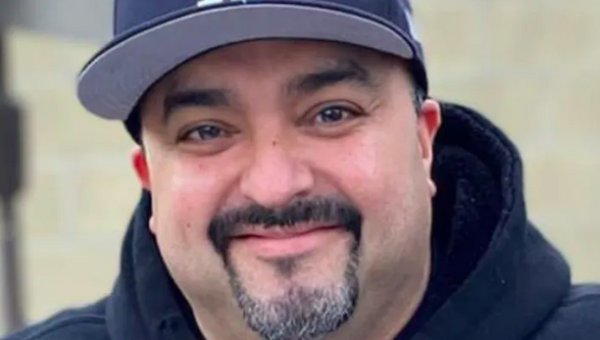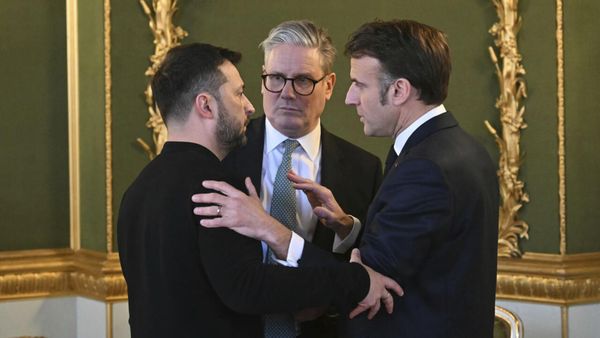It seems we are at a stage whereby it would not be a major sporting event if it weren’t accompanied by threats of a boycott.
Last year alone, the World Cup in Qatar and the Winter Olympics in China were both threatened with boycotts, although quite how serious they were, and how close they were to being carried out, it is difficult to say.
Now, with 18 months to go until the Paris 2024 Olympics, talk of a boycott has, once again, arisen, but much more significant than any of last year’s threats.
The International Olympic Committee (IOC) have long been embroiled in a tussle with Russian sport. Ever since the biggest state-sponsored doping programme in history was uncovered almost a decade ago, the involvement of Russian competitors has been tainted, with the country’s athletes competing as neutrals with no flag or anthem in the past three Olympics as punishment.
But since Russia’s invasion of Ukraine last year, there has been severe restrictions on the inclusion of Russian and Belarusian athletes with an outright ban in sports such as football and athletics, while competitors in individual sports, such as tennis, have been allowed to take part under a neutral flag.
However, with the qualification period for Paris 2024 now beginning for many sports, focus has shifted to the Olympic movement with serious talks of a boycott.
All the hints coming out of the IOC are that they want Russia and Belarus to compete. The IOC’s president, Thomas Bach, has long made it be known that he is against sporting boycotts. Two years ago he said: “A sports boycott serves nothing. It’s only hurting the athletes, and it’s hurting the population of the country because they are losing the joy to share, the pride, the success with their Olympic team.”
But discontent is growing about the prospect of Russia and Belarus turning up in Paris, even under cover of a neutral flag.
Ukraine’s president Volodymyr Zelensky has said Russian athletes should have “no place” at the Games, while the country’s sports minister, Vadim Guttsait, has said Ukraine would consider a boycott if the IOC indeed press ahead with their plan to include Russian and Belarusian athletes.
In quick succession, Latvia, which has been one of Ukraine’s closest allies throughout the war, has also pledged to boycott Paris 2024 if Russia is there, while a few days ago Poland’s sports minister suggested up to 40 nations could boycott the Games, thus rendering the whole event pointless.
It is clear that the IOC’s position, as is so often the case, is to wait as long as possible without making a decision and hope the whole thing blows over.
Certainly, if the war was to be over this time next year, it would make things a lot more straightforward.
But the point remains that Russia, a country which clearly loves to indulge in sportswashing wherever possible, sees the Olympic Games, and the platform international sport provides, as an excellent opportunity to rehabilitate its reputation.
Certainly, an Olympic ban primarily hurts individual athletes who have had nothing to do with starting this war, and many of whom, going by the sentiments of the few Russian athletes who have spoken about it, disagree with it wholeheartedly.
But too much capital is gained by Russia if it is allowed to participate in next year’s Olympics.
A boycott will not end the war, but allowing things to continue as normal, or as close to normal as possible, only sends the message that sport is willing to put up with all kinds of atrocities, as long as it can continue unaffected.
It comes as no surprise that the IOC are reluctant to stand up for what is right. For decades, it has been clear that not only is the organisation rife with corruption but that it had lost its moral compass a long time ago.
The decision should not be put upon individual countries about whether or not to boycott Paris.
A stance should be taken that demonstrates explicit support for Ukraine and that sport will not be used by Russia, nor any other country, as a means to paper over its politicians’ deplorable behaviour.
However, it’s almost certain the IOC will, once again, be too weak to do the right thing.
AND ANOTHER THING
Sport inched forward again last week in terms of male athletes coming out as gay.
When former New Zealand rugby player Campbell Johnstone came out it was another small but significant chipping away at the stigma that endures around sportsmen.
It remains shockingly uncommon for male athletes to reveal they are gay, particularly during the course of their career, but for every one who does, it has an overwhelmingly positive impact in terms of changing the landscape.
It remains baffling quite why so few male athletes feel able to come out.
Last year, for the first time for 30 years, an active professional footballer within the UK came out when Blackpool’s Jake Daniels did so which, given the number of professional male players, seems hugely disproportionate.
Overwhelmingly, when polled, athletes and fans alike say they would not react negatively to a gay sportsman but there is clearly a distrust from gay men within elite sport that this is true.
So, for every male athlete, whether current or retired, that comes out and receives a positive reaction, it erodes the stigma that unquestionably remains around gay sportsmen.







